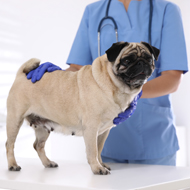Hygiene key as infection becomes more persistent
In response to reports that persistent pinworm infection is being seen more frequently across all age groups, animal health company Zoetis has advised owners of the importance of good stable and horse hygiene.
Whilst traditionally it was thought that older horses had a degree of natural immunity to the parasite, Zoetis says infections are now being seen regularly in older horses as well as young.
Indeed, the company has cited a recent study1 which suggests that four out of every eight horses infected with pinworm are aged 17 years or above.
Zoetis says this change has been accompanied by a shortened time between infection and egg production, and the changing behaviour of the parasite could be causing a rise in stubborn infections.
Although pinworm is not considered as harmful as some other parasites, it can cause considerable itching and rubbing when eggs are laid around the horse's anus in a sticky substance.
Furthermore, when the horse scratches, this substance can be left on fences and stable walls, leading to the spread of infection.
Zoetis vet Wendy Talbot, said: "It’s crucial to break the lifecycle of the worms. Walls, fence posts and any surface that may have been contaminated should be scrubbed using a hard wire brush and a non-toxic disinfectant, and feed and water sources should be thoroughly cleaned out, to prevent re-infection.
"In addition, the area around the horses tail and anus should be washed with an appropriate cleanser to remove the eggs and soothe the area."
The company is advising owners to seek worming advice from their vet if they suspect their animal is suffering from pinworm.
1 Reinemeyer, C., (2012) Anthelmintic resistance in non-strongylid parasites of horses. Veterinary Paristology; 185, 9-15






 The latest
The latest 
